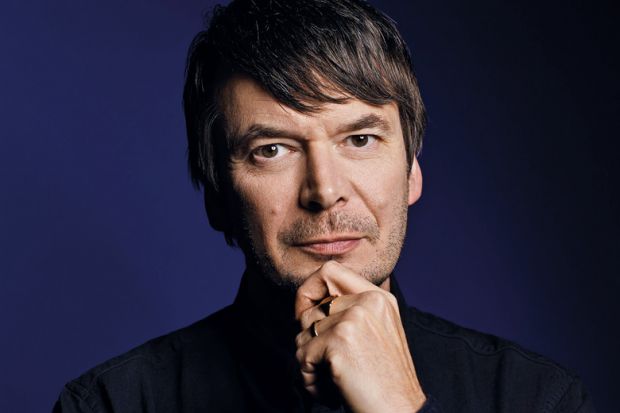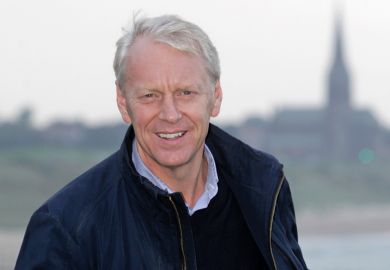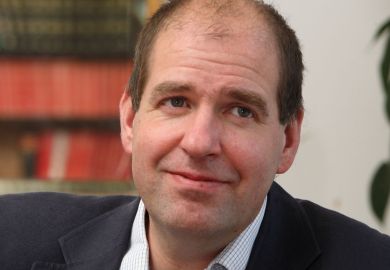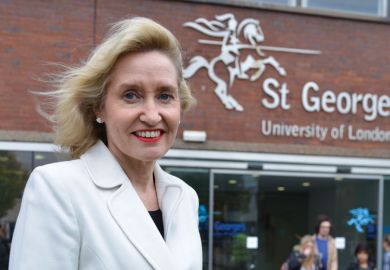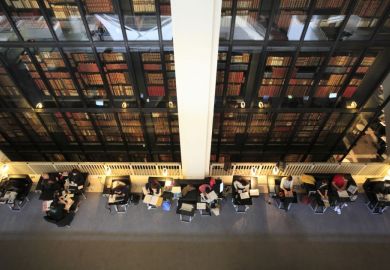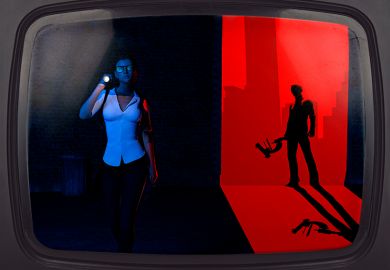Ian Rankin is a crime novelist best known for his Inspector Rebus series, of which he has authored 20 books. The latest novel, Rather be the Devil, will be published in November. Last month, he took up a position at the University of East Anglia as a United Nations Educational, Scientific and Cultural Organisation city of literature visiting professor.
Where and when were you born?
Cardenden, Fife, on 28 April 1960.
How has this shaped you?
It was a small, working-class town. Everyone knew everyone else, almost like a tribe of old. A safe place to grow up, but it could also feel stifling. I hid the fact that I was scribbling poems and song lyrics from everyone, including family and friends.
What were your reactions when you were asked to be the Unesco chair?
I was honoured but also slightly scared. I'm not entirely sure how I write my books, so I wasn't sure what knowledge I could impart to the students. On the other hand, when I was an undergraduate and postgraduate, I dreamed of being a professor one day. So how could I resist?
Has Rebus begun to feel almost like a real person to you over time?
I think that Rebus feels more real to readers than he does to me. When I'm not writing about him, I am able to see the world through eyes other than his. He doesn't share my personality or worldview. Sometimes I wonder if he’s my Mr Hyde.
What kind of relationship do you have with him: fraternal, confidant, problem friend?
If we met, I’m not sure that we would get on. We could speak about our shared birthplace and love of music. But after that we might come to an impasse. But there’s no doubting that he has been a useful means of exploring contemporary Scotland, and especially Edinburgh.
Your new book has Rebus retired but taking up a cold case. Will there be a moment when you retire him for good?
Well, I did try retiring him once, at the end of Exit Music. Five years later, I found myself needing him again, so he returned. But he is ageing and I do wonder how much more I can do with him now that he has retired irrevocably. As I sit here, I have no idea what happens next.
Do you still find the process of writing a new book thrilling and challenging, despite now being a veteran author?
Writing seems to get harder. It is always exciting when you get a new idea, but I agree with Iris Murdoch that each novel becomes “the wreckage of a perfect idea”. So, having failed to write the perfect novel, there’s nothing for it but to try again.
What’s the perception of creative writing courses in higher education and society? Are they viewed with scepticism?
Well, famously the first student to emerge from the original creative writing course at UEA was Ian McEwan – and he hasn’t done too badly. I just hope that no one enrols in a creative writing course thinking of it as a magic bullet or a shortcut to glory. Nothing succeeds like hard work and it pays in the long run to have served an apprenticeship.
What has changed most in higher education in the past 10 years?
In the UK, students seem to work harder and muck about less. With the school qualifications I got, I doubt that I would get into a university such as Edinburgh these days, and with debt waiting for me at the end of the process, I wonder if I would have felt comfortable studying English literature – with little hope of a (well-paid) job at the end of it.
Tell us someone you admire.
My English teacher in my final couple of years at high school was a brainy working-class guy from Glasgow, passionate about literature but also inclusive. He would teach us the lyrics of Paul Simon as examples of poetry. He was a huge influence on me. Thank you, Mr (Ron) Gillespie.
What advice would you give to your younger self?
Make Rebus younger in the first book – that way you won’t be writing about a 65-year-old in 2016.
What are the best and worst things about your job?
Best: you get to play with your imaginary friends, so remain childlike, while also getting to play God by having the power of life and death over those characters. Worst: the touring. It sounds glamorous but it is a chore that consumes more and more of my time. And when I’m on tour, I can’t write.
What’s your biggest regret?
My biggest regret is that neither of my parents lived to see me become a success.
What advice do you give to your students?
Read lots, write lots, get lucky, stay lucky – stuff like that.
What’s your most memorable moment at university?
Maybe the night I met my wife. (She was the year above me at Edinburgh doing the same course.)
Have you ever had a eureka moment?
I have one with every book, usually about two-thirds of the way through the first draft when I begin to envisage the ending for the first time. When I start a book, I have only the vaguest notion of how it’s going to pan out.
What one thing would improve your working week?
My working week would improve if I got faster at The Times crossword. It can take 30 to 45 minutes out of my day.
Appointments
Antony Eastmond has taken up his position as dean and deputy director of the Courtauld Institute of Art, University of London. Professor Eastmond, himself a master’s and doctoral graduate of the institute, has been teaching there since 1995 after almost a decade at the University of Warwick. His research is divided between topics in Late Antique and Byzantine art and topics relating to the Caucasus (Georgia and Armenia), and relations between the Christian and Islamic cultures there. Deborah Swallow, Märit Rausing director of the Courtauld, said that Professor Eastmond’s “invaluable experience and leadership will ensure that we further develop our academic profile and influence and firmly establish the Courtauld’s status as the world’s leading university for the study of art history, conservation and curating”.
Ghazwa Alwani-Starr has been appointed director of property and facilities management at the University of London. Dr Alwani-Starr, who joins from the University of Roehampton, will take up her position at the beginning of December. In her role, she will continue the work of the department including maximising the academic opportunities of the university’s considerable estate as well as diversifying the income base. At Roehampton, Dr Alwani-Starr was director of estates and campus services where she led a £100 million programme for the development of a new university library and two new halls of residence.
Heriot-Watt University has announced the appointment of Garry Pender as deputy principal, research and innovation.
The Royal Society has appointed six scientists to research professorships. The new professors are: Stephen Barnett, University of Glasgow; Andrea Brand and David Klenerman, University of Cambridge; David Leigh, University of Manchester; Gideon Davies, University of York; and Charles Swanton, University College London.
POSTSCRIPT:
Print headline: HE & me
Register to continue
Why register?
- Registration is free and only takes a moment
- Once registered, you can read 3 articles a month
- Sign up for our newsletter
Subscribe
Or subscribe for unlimited access to:
- Unlimited access to news, views, insights & reviews
- Digital editions
- Digital access to THE’s university and college rankings analysis
Already registered or a current subscriber?
